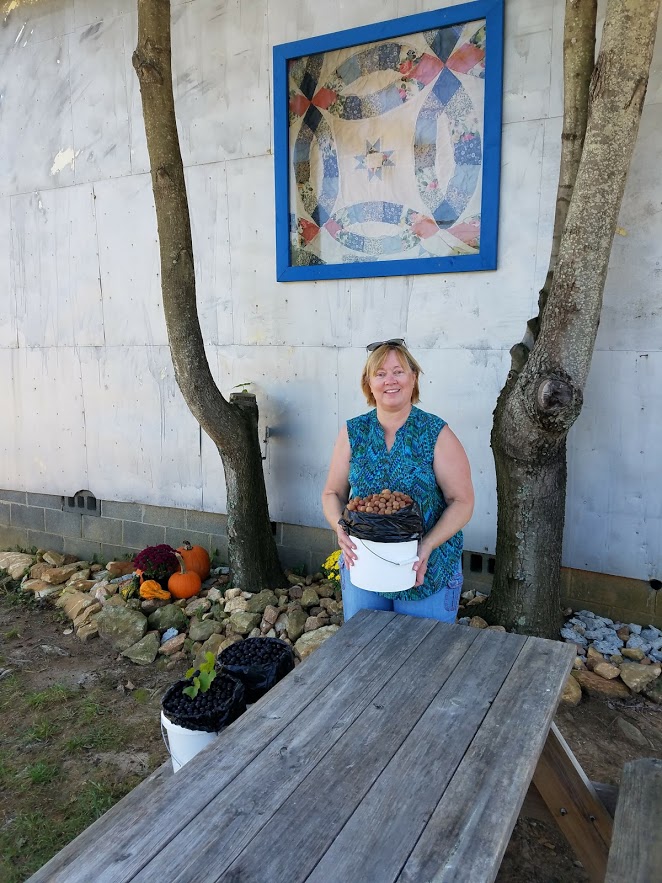
STUDENT INNOVATES TO FIND A CREATIVE SOLUTION
Kristi Marshall was at a point in her life when she didn’t really need help with her career. As a Systems Analyst II, she had already worked her way up. She had a 20-year career in information technology and 40 years in all at Cone Health, so she didn’t pursue a master’s degree to get ahead at work. For the mother of three and grandmother of six, pursuing a master’s was personal.
“By the time you get my age, you just want something that’s going to mean a lot to you,” she says.
She discovered the Master of Arts in Liberal and Interdisciplinary Studies (MLIS) program at UNCG after other programs didn’t fit her desire. The Design Thinking course helped her connect skills she was learning to her lifelong love of farming.
A need in the community
Thanks to the Design Thinking course, Marshall created an innovative solution to a need in her community through her Rockingham County farm, Riverbirch Vineyards and Farm.
The seven-week online course teaches students to find unique ways to solve real-world problems of their choosing, working on their projects throughout the course.
“I was thinking of how can we get fresh, wholesome food to everybody in the community,” she says. “What could I do on the farm that would be a good way for me to reach out and tell people what we can do, what we offer, but then have just one small community of farmers serving whoever needs it?”
A creative solution
Marshall realized a popup produce stand could bring fresh produce to a population in her community in need: the elderly, shut-ins, and others without transportation. It’s a way to connect small and large growers with neighbors who might not have access to fresh, local food.
She sees it as a mobile market where she could sell produce from a collaboration of farmers at designated sites or bring the stand to customers’ homes.
Family commitments have kept Marshall from implementing her plan so far. She currently brings produce from her farm to neighbors who need it, while finishing her plan for a mobile produce cart. Her idea won’t require much more than produce and a vehicle, but she’ll also need a marketing strategy, funding, committed farmers, and locations to make it work, all part of her original design.
Putting skills in motion
Since graduating in 2016, Marshall has applied the skills to other projects. “It really gave me an opportunity to flex my project-management skills, my leadership skills,” she says.
She and her husband bought their farm 25 years ago and grow muscadine grapes, pears, apples, pumpkins, garlic, and more, which they sell from a farm stand at their barn. Marshall has implemented skills from the course to reorganize the barn to flow better, be safer, reduce waste and expense, and save time.
Problem-solving experience
The online collaboration of this course helped Marshall get involved with her community.
“This got me out of the chair, out in my community, and that’s where I wanted to be,” she says. “I don’t know that I will make a lot of money, but it’s just that good feeling that we’re doing the right thing.”
The course gave her experience she can draw on in other aspects of her life, whether related to farming or not.
Marshall has used design thinking to help manage young children in her family. “It gives you that background for listening and observing what really needs to be done. ‘What can we do to fix this problem?’ I loved it.”